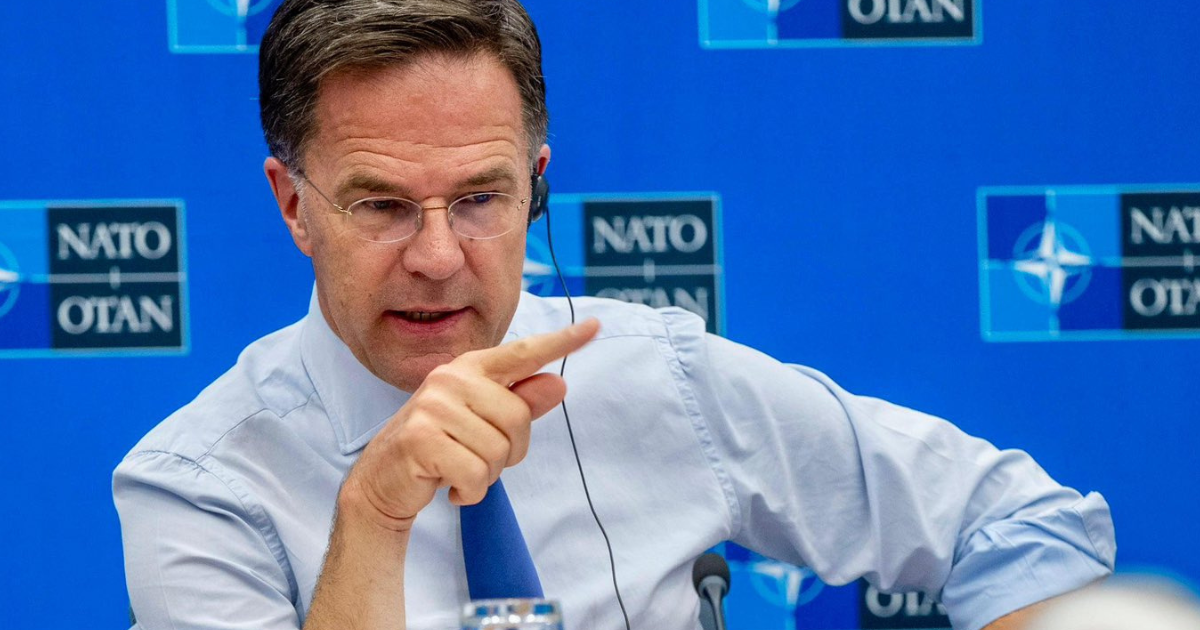EXCLUSIVE: The Real Cost of Europe’s War Hysteria

Colonel Jacques Baud, with the frankness of a veteran unafraid of diplomatic varnish, lays bare a disquieting truth: Europe is doubling military budgets not to defend against an imminent Russian invasion but to create a justification for diverting social spending into weapons procurement. He describes the 5% of GDP target as a shell game—3.5% for national defense, 1.5% conveniently labeled “collective defense” to fund Ukraine. The real rationale? Frightening European populations with fantasies of Russian tanks rolling into Paris.
France’s top brass, he notes, has declared Russia its "primary target" without a shred of evidence of any plan or objective by Moscow to occupy Western Europe. This rhetorical threat inflation is no accident: it normalizes cutting pensions and healthcare to pay for missiles. He points out that the states pushing hardest for rearmament are those with the worst GDP per capita in Eastern Europe—governments eager to buy favor in Washington even at their people’s expense.
Baud doesn’t buy the popular Western narrative that Russia wants to occupy all of Ukraine. On the contrary, he argues Russia is aiming for strategic balance—controlling heavily Russian-speaking regions while avoiding the nationalist west of Ukraine, which would turn into an insurgent nightmare. He even sketches the potential post-war map: a rump central Ukraine, with ethnically Hungarian, Romanian, and Polish regions reverting to their neighbors.
Colonel Jacques Baud delivers a stark critique of Europe’s narrative that frames Russia as bent on conquering Paris or Berlin, calling it pure threat inflation with no strategic rationale behind it. He argues this manufactured fear serves one cynical purpose: making it politically acceptable to divert money from pensions, healthcare, and social programs into military budgets. Baud dismantles the logic of imagining a Russian occupation of Western Europe, pointing out the absurd logistical impossibility and lack of any coherent objective.
This analysis shatters Western illusions of "victory" and questions the sanity of prolonging a war Ukraine cannot win. Baud details how Russia, initially willing to withdraw for neutrality pledges, hardened its stance after Ukraine, with Western backing, reneged and attacked Russian soil. Today, he says bluntly, those lost territories are unlikely ever to return. The realpolitik is that Russia can enforce its demands on the ground.
Baud is scathing about Western leadership, describing them as "intellectually challenged" elites using the Ukraine war as a distraction from collapsing domestic economies and widening class rifts. He compares this to George W. Bush's Global War on Terror, launched to paper over failures at home. European leaders, he says, spend more time pontificating about Ukraine than solving domestic crises—a deliberate strategy to rally their disaffected populations against an external enemy.
He also savages Western hypocrisy: trumpeting international law while ignoring it at will. The same International Criminal Court that was applauded for targeting Putin is sanctioned when it turns to Netanyahu. Europe lectures the world about anti-personnel mines while Poland and the Baltics abandon the Ottawa Treaty. The West, he argues, is destroying the very post-WWII legal order it built, replacing it with a cynical system of rules only for its rivals.
Baud warns that this approach is not only morally bankrupt but strategically suicidal. By waging an economic and propaganda war on the Global South—through sanctions, tariffs, and forced alignments—the West is deepening the divide that fuels mass migration, drains social budgets, and destroys domestic stability. What he says next about Russia’s diplomatic victories, BRICS realignment, and why the Global South increasingly sides with Moscow is even more damning.
Colonel Jacques Baud lays out in stark terms why Europe’s strategy is backfiring internationally. Far from isolating Moscow, sanctions and Western propaganda have forced Russia to develop an agile, expansive diplomacy. He credits Russia with breaking out of political encirclement through relentless engagement with the Global South—highlighting Moscow’s role in strengthening BRICS, creating new payment systems to evade Western financial control, and even offering mediation in conflicts from the Middle East to Iran-U.S. tensions.
Baud argues that the West fatally underestimated how this conflict would be seen outside Europe. In his view, Russia’s portrayal as a nation forced into war to block NATO expansion has struck a nerve with countries long weary of Western hegemony. He cites how China, India, and much of the Global South have refused to condemn Moscow, not because they welcome territorial conquest, but because they see Ukraine as a U.S. proxy war designed to trap Russia—something even American politicians have accidentally admitted.
He is unsparing about Western double standards: celebrating the ICC when it targets Putin, sanctioning it when it moves on Netanyahu. Baud describes this as the destruction of the post-WWII international legal order, replaced by arbitrary rules applied only to rivals. This hypocrisy, he warns, has obliterated the West’s moral authority, leaving its calls for human rights ringing hollow in the Global South.
In one of the most striking moments, Baud points to the Ottowa Convention on anti-personnel mines, abandoned by Poland and the Baltics while European leaders continue to lecture others on humanitarian law. The cumulative effect of such actions, he argues, is to convince the Global South that the West cannot be trusted to uphold any norm or principle if it becomes inconvenient. “We are destroying exactly what we built to prevent war, discrimination, and abuse,” he says, accusing Europe of sabotaging the very order that kept peace after WWII.
Baud also offers a grim warning about blowback. By using sanctions and tariffs to cripple BRICS economies—Trump’s letter to Brazil’s Lula being only one example—the West risks driving migration pressures that will further strain its gutted social systems. He describes this as the height of self-inflicted harm: forcing refugees to flee failed states destabilized by Western pressure, only to arrive in Europe whose welfare budgets have been cannibalized for tanks and missiles.
Former NATO and UN intelligence officer Colonel Jacques Baud exposes the unintended consequences of Western sanctions aimed at weakening Russia and BRICS nations. He explains how these economic attacks don’t just fail—they backfire spectacularly by destabilizing developing economies, forcing people to migrate to the very Western countries slashing pensions and welfare to fund defense.
But he insists this isn’t just moral failure; it’s catastrophic strategy. By refusing to engage with Russia’s terms—even now when Moscow is clearly winning—the West is ensuring the war drags on, bleeding Ukraine of its vital population and making reconstruction nearly impossible. He points to interviews with Ukrainian refugees in Belgium who say they’ll never return, noting this demographic hollowing-out will haunt Ukraine even if the fighting stops.
Ultimately, Baud concludes the West must confront an unpalatable reality: there is no Ukrainian victory to be had. The territories Russia controls are unlikely to be given back, and prolonging the war only increases the cost in lives and money. He calls for a negotiated settlement that accepts the military facts on the ground. Anything less, he warns, is a cynical betrayal of both Ukrainian lives and Europe’s own future.
Colonel Jacques Baud is a former Swiss Army officer, intelligence analyst, and author known for his extensive career in military strategy and international security. Born in 1955, Baud served in the Swiss Strategic Intelligence Service, where he was responsible for monitoring Warsaw Pact forces during the Cold War. He later held significant roles with the United Nations, including as head of the first civil-military intelligence center (Joint Mission Analysis Centre) in Sudan and as Chief of Policy and Doctrine in the UN Department of Peacekeeping Operations in New York. Baud also worked for NATO, focusing on countering the proliferation of small arms and mine action, and participated in programs related to Ukraine during the 2014 crisis.
Baud holds advanced degrees in econometrics and international security from the Graduate Institute in Geneva. He has authored several books on intelligence, warfare, and terrorism, and is recognized for his expertise in Eastern European affairs and asymmetric warfare. Throughout his career, Baud has been involved in high-level negotiations and advisory roles, including work in Africa during the Rwandan crisis and in Eastern Europe after the fall of the USSR. His public commentary and writings, particularly on recent conflicts such as the wars in Syria and Ukraine, have sparked both interest and controversy due to his unconventional perspectives and criticisms of mainstream narratives.
Source:
